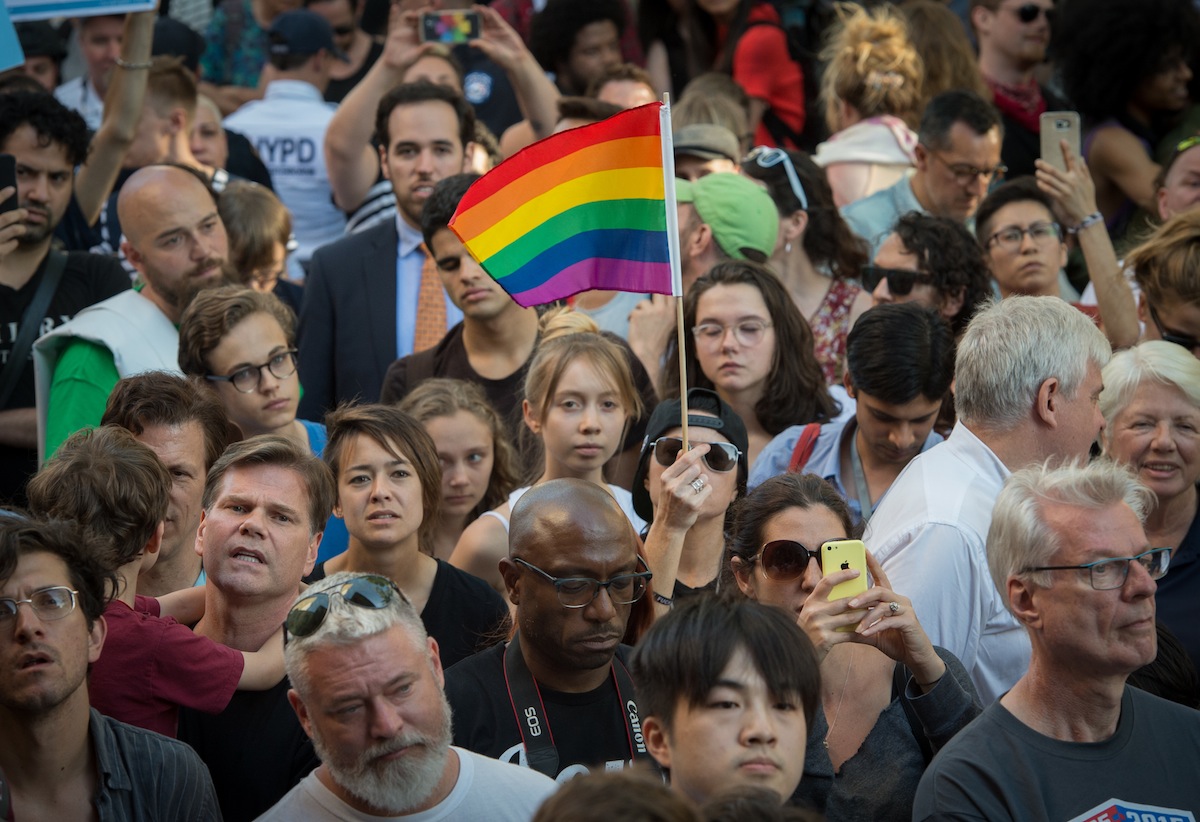Is the ban on Conversion Therapy unconstitutional?
The 11th US Circuit Court of Appeals thinks so.
In a 2-1 vote, the court sided with two therapists, Robert Otto and Julie Hamilton, who challenged the conversion therapy ban in the city of Boca Raton and Palm Beach County, which was passed in 2017.
According to Liberty Counsel, the Christian legal organization representing Otto and Hamilton, conversion therapists “provide life-saving counseling to minors who desperately desire to conform their attractions, behaviors, and gender identities to their sincerely held religious beliefs.” The plaintiffs argued that they were barred from even talking to clients through “speech-based therapy,” which they claimed was a violation of the First Amendment.
Conversion therapy aims to change a queer individual’s sexual orientation and/or gender identity to adhere to straight and/or cisgender roles in society. An analysis of peer-reviewed scientific articles on the topic showed that at least 12 studies have found the practice not only ineffective but also damaging for the client. The American Psychological Association has disavowed conversion therapy and has voiced concerns over Friday’s overturning of protections against the method.
A policy research director at the Movement Advancement Project (MAP), Naomi G. Goldberg, stated that “this ruling is concerning because so-called conversion ‘therapy’ is a harmful and discredited practice, especially when it comes to minors,” she wrote to The Globe Post. “Youth experiencing this type of abuse are at greater risk for depression, suicidality, anxiety, and social isolation.”
“We understand and appreciate that the therapy is highly controversial,” Judge Britt Grant wrote in the ruling. “But the First Amendment has no carveout for controversial speech. We hold that the challenged ordinances violate the First Amendment because they are content-based regulations of speech that cannot survive strict scrutiny.”
Grant argues that “the First Amendment exists precisely so that speakers with unpopular ideas do not have to lobby the government for permission before they speak.”
Judge Grant and his colleague Judge Barbara Lagoa formed the majority vote to reverse the ban, while Judge Barbara Martin dissented.
Reasons to Worry
Whereas Judge Martin was appointed by former President Barack Obama, both Grant and Lagoa were chosen by President Donald Trump. In fact, Lagoa was on Trump’s shortlist for the Supreme Court nomination after Justice Ruth Bade Ginsburg‘s passing in September.
“Much attention has been paid to Trump’s appointments to the US Supreme Court,” Goldberg from MAP said, “but his appointments throughout the federal judiciary will also have a serious impact for decades to come.”
Goldberg claimed that this ruling limits the ability of other cities and counties in Florida, as well as other states covered by the 11th Circuit, to pass or enforce protection against conversion therapy. Prior to the appeal, only three counties and 19 cities in Florida passed local laws banning conversion therapy. The overturning of the case in Boca Raton and Palm Beach County could complicate future prohibitions of the practice throughout the entire state.
LGBTQ Rights in the Sunshine State
Florida is just one of 29 states without a state-wide prohibition against conversion therapy, but there are many other issues concerning the LGBTQ community in America’s Sunshine State.
For one thing, although the Supreme Court ruled down a federal law that protects LGBTQ employees from workplace discrimination in June, Florida still has broad religious exemption laws. Under these laws, individuals or churches can be immune from state legislation that burden religious beliefs, such as anti-discrimination laws. In other words, the right to free religious exercises trumps the right for LGBTQ people to equal opportunities in states like Florida.
According to MAP, there are no laws shielding LGBTQ individuals in Florida from discrimination in certain areas at all, such as credit and lending services, adoption and foster care, and access to school facilities.
Florida’s LGBTQ community hopes that the local conversion therapy case was a mere departure from the precedent, and not the start of many more challenges to come.


